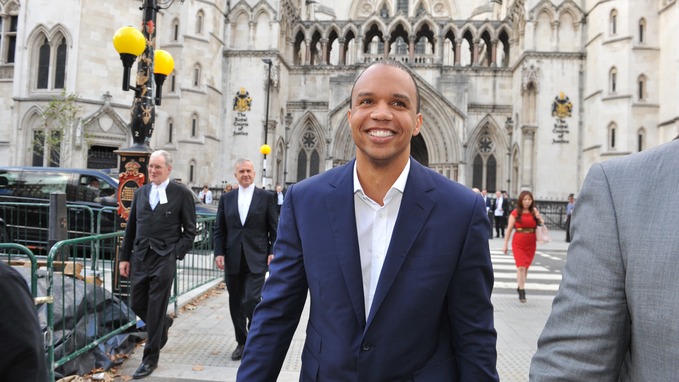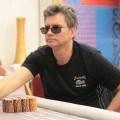
Phil Ivey Back to Court for Crockfords Edge Sorting Appeal

Phil Ivey is “genuinely convinced” he did not cheat at Crockfords Casino in London, says his lawyer. Ivey is appealing the verdict. (Image: itv.com)
Phil Ivey is to appeal against the judgment of the High Court in London in the Crockfords Casino edge-sorting case.
According to his lawyer, Matthew Dowd of Archerfield Partners LLP, Ivey has formally filed papers to challenge last month’s judicial ruling that Crockfords was entitled to withhold £7.7 million ($12.5 million) in punto banco winnings, because the casino believed Ivey had cheated.
On October 8, the judge ruled that the practice of “edge-sorting” used by Ivey and accomplice Cheung Yin Sun during the punto banco sessions at the casino in 2012 did, indeed, constitute cheating, despite saying he believed that Ivey was an “honest witness.”
Using edge-sorting, a player is able to determine the value of a card by observing subtle flaws in the pattern on the back, thus turning the odds to his favor. The Crockfords case was the first time the legality of the practice has been challenged in the courts.
Convinced He Didn’t Cheat
“What Mr. Ivey and Ms. Sun did was to persuade the croupier to turn some of the cards in the dealing shoe to permit them to know that they were or were very likely to be sevens, eights or nines, and in circumstances where she did not realize she had done so; and, if she had, would have immediately stopped play,” summarized the judge, Mr. Justice Mitting.
“The fact that Mr. Ivey was genuinely convinced that he did not cheat and that the practice commanded considerable support from others was not determinative of the question of whether it amounted to cheating,” he added, before ruling that, for the purposes of civil law, edge-sorting was, in his view, cheating.
Outside the courtroom, Ivey expressed his disappointment. “I believe that what we did was a legitimate strategy and we did nothing more than exploit Crockfords’ failures to take proper steps to protect themselves against a player of my ability,” he said.
More than Reputation at Stake
“I can confirm that Phil Ivey [has] filed papers at the Court of Appeal,” announced defense counsel Dowd this week. “Phil is seeking to appeal the decision on the basis that the Judge was incorrect in both fact and law to conclude that ‘edge sorting’ was cheating, particularly in circumstances where the Judge made it very clear in his judgment that he considered Phil to be a truthful witness and that he accepted that Phil genuinely believes that his actions during the game at Crockfords did not constitute cheating.”
It’s not just a gambler’s reputation and $7.7 million that’s at stake here. While Ivey is attempting to sue Crockfords for withheld winnings, in New Jersey, the Borgata is suing Ivey for fraud over the $9.6 million he and Sun one under similar circumstances, also in 2012. Furthermore, and alarmingly for Ivey, the Borgata’s lawyers have stated they believe that the charges of fraud should carry a prison sentence.
While these are two separate cases playing out in two separate legal systems on different sides of the Atlantic, the final decision in the Crockfords case, especially of it’s positive for Ivey, may still have some influence in the ultimate judgment of the Borgata case.















0 Comments